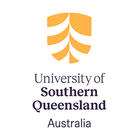Master of Information Systems (Business Analytics)
Master of Information Systems (Business Analytics)
Overview Data can be considered as the new gold. It’s become a strategic asset that provides competitive advantage for organisations and there is a growing interest among organisations to understand data and its application. Become an expert in this emerging area of study and expand your career to make an…
Categories
COURSE DESCRIPTION
Overview
Data can be considered as the new gold. It’s become a strategic asset that provides competitive advantage for organisations and there is a growing interest among organisations to understand data and its application.
Become an expert in this emerging area of study and expand your career to make an impact in data-driven business development and performance management.
Study Business Analytics with UniSQ and learn to recognise the strategic role of data and how to utilise data to predict, explain, visualise, and advise business operations.
You’ll explore industry-relevant topics, such as data visualisation, business intelligence, artificial intelligence, social media analytics that help drive the decision-making process within an organisation.
Discover how business intelligence plays a critical role in ensuring that organisations achieve strategic goals by monitoring data-driven and fact-based performance and achievement of day-to-day operational goals
Further study
You can apply for a Master of Research or PhD if you’re interested in specialising further.
Professional accreditation
The Master of Information Systems is accredited at professional level by the Australian Computer Society (ACS) and, through the Seoul Accord, which is recognised in other countries. The Seoul Accord is a multi-lateral agreement that allows ACS accreditation to be recognised globally. This means when you graduate, your degree will be recognised by other countries who are members of the Accord.
Career outcomes
Graduates can find jobs as a business data analyst, data-driven decision makers, operations analyst, market research analyst, supply chain analyst, marketing analyst, data and insight manager, business intelligence manager, or business development manager, and may use their data management skills to solve problems for marketing, product development, finance, engineering, or in customer service areas. The responsibilities of these roles include but not limited to business intelligence, data visualisation, data management, data modelling, and design.
REQUIREMENTS
Completion of an Australian university bachelor degree, or equivalent.
IELTS (Academic only) – Overall minimum score of 6.5 and no individual band score of less than 6.0; TOEFL (internet based) – Overall minimum score of 90 and no individual skills score of less than 20; Pearson (PTE Academic) – Overall score of 58 and no individual Communicative Skills score of less than 58; Cambridge C1 Advanced C2 Proficiency – Overall minimum score of 185 with no less than 185 in each skill.
EDUCATIONAL INSTITUTION
The University of Southern Queensland (UniSQ) is Australia’s leading regional university. With a strong focus on research, teaching and positive student experience, we provide high-quality flexible programs producing some of Australia’s highest-paid graduates4. Our students benefit from flexible options of on-campus studies, delivered across three campuses in Queensland, Australia, online and multimodal study options and through trusted national and international education partners. UniSQ is ranked in the top 400 universities2 and 58 young universities worldwide3. UniSQ is also rated as a QS 5 Star university and ranked 5/5 stars in Australia for graduate employment and graduate starting salaries1.1 QS Stars World University Rankings, 20242 Times Higher Education World Universities Rankings, 20243 Times Higher Education Young Universities Rankings, 20244 QILT Graduate Outcomes Survey, Postgraduate Results, 2021-2022

